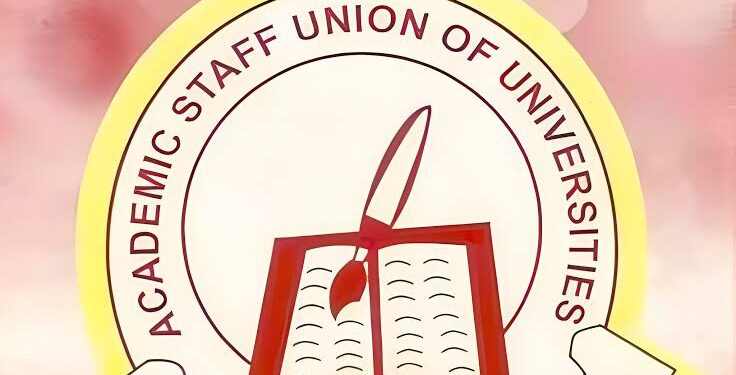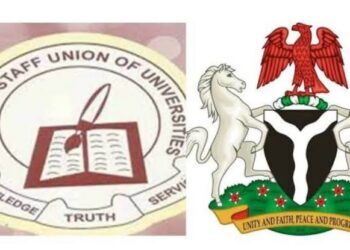The Academic Staff Union of Universities (ASUU) has emphasized the importance of activating the significant backlog of unutilized funds designated for tertiary education. The union cautioned that the ongoing dormancy of these financial resources could impede the advancement and growth of the sector.
This call to action coincides with a recent strategic engagement hosted by the Tertiary Education Trust Fund (TETFund), which brought together stakeholders and leaders from beneficiary institutions for a day of collaboration in Abuja.
During the meeting, TETFund’s Executive Secretary, Arch. Sonny Echono, highlighted that this strategic interaction signifies a new phase for the organization, aimed at aligning efforts with stakeholders to optimize performance and enhance the overall quality of tertiary education in Nigeria.
Echono noted that the recent increase in education tax from 2.5% to 3% positions TETFund to make a more substantial impact, particularly in improving infrastructure, academic programs, and student accessibility.
“As leaders of TETFund beneficiary institutions, your role is crucial in fulfilling the Fund’s mandate. Engaging constructively is essential to chart a clear direction for our operational priorities,” he stated.
“TETFund’s mission is to empower Nigeria’s human capital, addressing the pressing demand for skilled professionals across all sectors. Established in response to deficiencies in the tertiary education sector, TETFund originated as the Education Tax Fund in 1993 and evolved in 2011 to focus on enhancing the quality of public tertiary institutions through Education Tax contributions.
“The tax increase authorized by President Bola Ahmed Tinubu last year is a significant advancement for TETFund, reinforcing the government’s commitment to strengthening Nigeria’s educational framework.
“We encourage all stakeholders to actively participate in fostering these partnerships. Let us seek innovative methods to link our institutions with industry leaders, creating a mutually beneficial relationship that supports both students and the economy,” he added.
Prof. Emmanuel Osodeke, the President of ASUU, urged university leaders to advocate for their interests rather than relying on others to negotiate their futures. He expressed concern that proposed tax alterations affecting TETFund could severely impact funding for Nigerian universities, stressing the importance of opposing such measures if there is a genuine commitment to the education system.
He remarked, “We face numerous challenges. If we do not exert effort, we may find ourselves without a presence in the next six years. Our future hinges on the actions of the National Assembly. I am pleased to see representatives from both the Senate and the House of Representatives present today.
“We are aware of two sets of bills in the National Assembly concerning TETFund—one from the executive branch and another from the legislature. The executive bill outlines an increase in the tax paid by industries to 4% by 2025, with TETFund receiving half, but this will decrease to 3% by 2027.
“It is critical that these funds are not diverted into loans through banks. The proposed NELFund, which functions as a bank, should not be the avenue for student loans. If we genuinely care about Nigerian universities, we must prevent this bill from passing. Should it succeed, it could spell disaster for our institutions,” Osodeke cautioned.
He further stated, “We have identified substantial sums of money tied up in central banks. In the last 20 years, many universities have been unable to access these funds. Let’s engage in a candid discussion.
“Projects initiated years ago still have unspent allocations. By 2031, our assessments indicate that we lack the capacity to utilize these funds. This accumulation signifies a need for better management. If we cannot effectively use current funds, we should not gain access to new allocations until we demonstrate our capability,” he explained.
Hon. Aminu Bello Masari, Chairman of the TETFund Board of Trustees, called for the depoliticization of the education sector to foster genuine development. He encouraged universities to devise their own funding strategies instead of solely relying on government support.
“I commend ASUU for establishing this intervention agency 21 years ago, which has remained committed to maintaining low establishment rates in our higher education institutions. This commitment has resulted in some of the best institutions in the nation. It is crucial that we begin to consider sustainable funding mechanisms for education,” Masari concluded.











